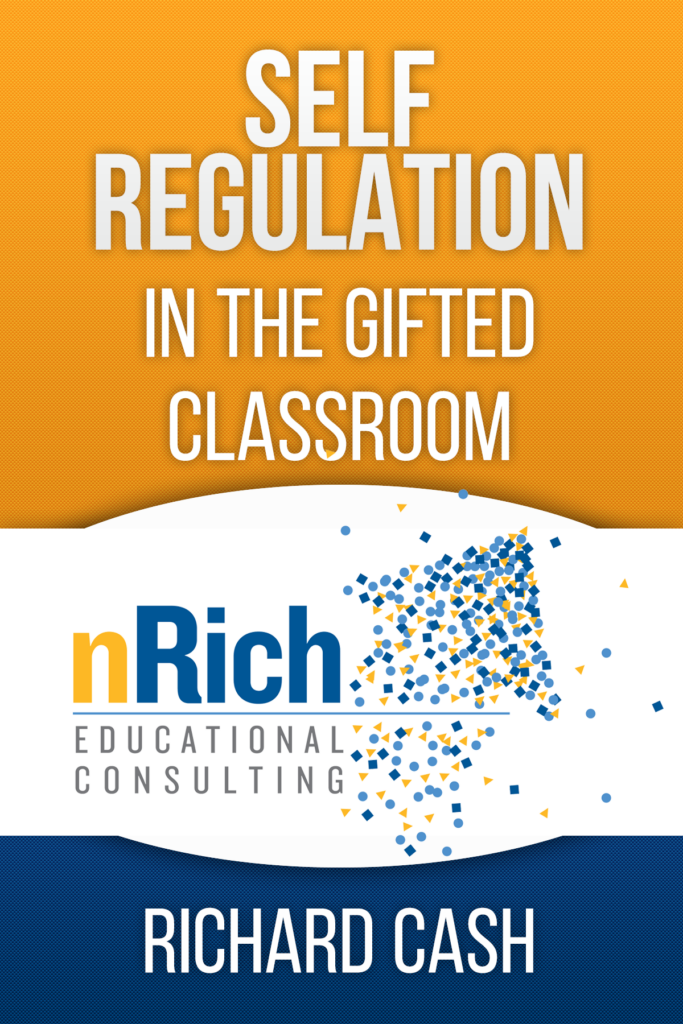Gifted education, while immensely rewarding, presents educators with a tapestry of complexity. Often characterized by their exceptional abilities, gifted students require a nuanced approach that nurtures their potential while addressing their unique challenges. Dr. Richard Cash, with his vast experience and expertise, delves deep into these intricacies. His course, Self-Regulation in the Gifted Classroom, An Overview – Extended Learning Session, serves as a comprehensive guide offering both fresh perspectives and practical strategies to educators dedicated to elevating the learning experiences of their gifted students.
Recognizing the Symptom vs. The Source
Distinguishing the deeper causes behind behaviors is crucial. Teachers should seek the underlying reasons instead of only reacting to the visible actions. As Dr. Cash insightfully states, “One of the things we have to be careful of is that a lot of times teachers will recognize the first behavior and then stop at that. Remember, a behavior is a symptom, not necessarily the source.” This understanding leads to:
- Identification: Recognizing the true reasons behind disruptions.
- Intervention: Designing solutions that address the core issues.
- Insight: Keeping a complete view of each student’s behavior and needs.
Embracing the Power of Modeling
A thriving classroom is where teachers are more than instructors; they are role models. Students often learn more from observation than instruction. Dr. Cash underlines, “Model positive self-talk. Talk to yourself out loud and show kids how you deal with stress. Show kids how you deal with anxiety about trying something new because they need to see it. That modeling phase has to happen.” Modeling can:
- Exemplify: Show real-life resilience and coping examples.
- Promote Transparency: Encourage an atmosphere where struggles and coping methods are shared.
- Inspire: Act as a guiding light for students, demonstrating possible solutions to challenges.
Making the Best Use of Time
Time isn’t just ticking away. For teachers, time represents opportunities and choices. Utilizing time effectively can be the difference between a student grasping a concept and struggling with it. Dr. Cash emphasizes the importance of managing classroom hours wisely, ensuring that each moment adds value to the learning experience. Here are some ways to manage time effectively:
- Picking What Matters Most: Focus on lessons and activities that deliver the most impact.
- Harmonizing Work and Play: Ensure there’s a balance between academic rigor and rejuvenating breaks.
- Efficiency in Execution: Adopt methods that maximize learning in the shortest span.
- Adapting to Students’ Pace: Recognize that every student learns at their own speed and adjust accordingly.
Understanding Gifted Students’ Emotions

Gifted students often have heightened emotional sensitivities. Understanding this emotional landscape is vital for educators. By connecting on an emotional level, educators can foster an environment where gifted students thrive.
- Deep Dive into Emotions: Recognize and respect the emotional intensity of gifted students.
- Building Emotional Resilience: Equip them with strategies to manage strong feelings.
- Nurturing Empathy: Create a classroom atmosphere where students feel safe expressing themselves.
- Engagement Beyond Academics: Foster activities that cater to their emotional and social needs.
Your Unique Educational Journey
Every educator has a unique path, shaped by experiences, beliefs, and the students they meet. Dr. Cash’s course offers strategies to enhance one’s teaching style, enriching your approach to meet the evolving needs of gifted students. Here are some tips to consider on your journey:
- Discovering Personal Strengths: Reflect on your teaching style and identify areas of excellence.
- Overcoming Obstacles: Arm yourself with strategies to navigate classroom challenges.
- Continuous Learning: Embrace new techniques to stay updated and resilient.
- Tailoring Your Approach: Understand that each class, each student might need a different touch.
Unlocking the Future of Gifted Education
The realm of gifted education requires more than just knowledge. It demands an understanding of self-regulation and the unique needs of gifted students. Dr. Richard Cash’s Self-Regulation in the Gifted Classroom, An Overview – Extended Learning Session stands as a guiding light for educators who are ready to enhance their teaching methods. Are you prepared for this enlightening journey?


